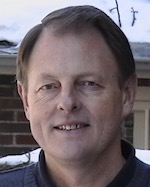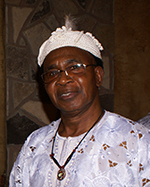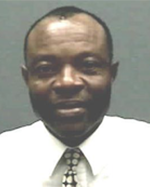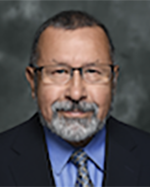Keynote Speakers
Jim Cummins
Jim Cummins is a Professor Emeritus at the Ontario Institute for Studies in Education of the University of Toronto. His research focuses on literacy development in educational contexts characterized by linguistic diversity. In numerous articles and books he has explored the nature of language proficiency and its relationship to literacy development with particular emphasis on the intersections of societal power relations, teacher-student identity negotiation, and literacy attainment. He is the author (with Margaret Early) of Identity Texts: The Collaborative Creation of Power in Multilingual Schools (Trentham Books).
Plenary Speakers
Anthony N. Ezeife
Professor Anthony N. Ezeife (B.Sc., M.A., M.Sc., Ph.D.), Faculty of Education, University of Windsor, is a much-travelled Teacher Educator and Researcher. Dr. Ezeife has taught and done extensive cross-cultural research in several countries. His research focus is on making mathematics/science culturally relevant and meaningful to learners in general, and in particular, for students of Indigenous and minority cultural backgrounds. To this end, he has targeted several mathematics/science studies on Canadian Indigenous students, Native populations in the USA, and some other culturally at-risk learners in diverse cultures worldwide.
Dr. Ezeife’s rich publication record stretches as far back as the 1980s. To date, he has published numerous and oft-cited papers in top-tier journals in virtually all the continents of the globe. Additionally, his academic and notable research engagements have earned him several scholarly awards. These include the Ontario Council on University (COU) Research Success Story Award (2005); the University of Windsor Research Excellence Award for his SSHRC-funded Mathematics-Schema Project in the Aboriginal Community of Walpole Island, Ontario (2005-2008); and the Faculty of Education Research Recognition Award (2009). He is a Co-applicant in the current SSHRC-funded Canada-China international Reciprocal international Reciprocal Learning Partnership Project which won the University of Windsor Research Excellence Award in 2014.
Barnabas C. Emenogu
Barnabas C. Emenogu has had the rare privilege of exposure to tertiary education on an international platform. Obtaining a Bachelor’s degree from Nigeria’s premier tertiary institution – the University of Ibadan, he proceeded to the University of Nigeria, Nsukka, for graduate studies, completing his Master’s degree in record time. To fulfil his quest for international educational attainment, he went on to the University of Toronto, and holds a PhD of that high-profile institution – with specialization in Educational Measurement, Evaluation & Statistics.
Dr. Emenogu’s international educational exposure has enabled him to make notable contributions to reciprocal teaching/learning initiatives, and educational development activities in African countries and the Western world. He was the founding Secretary of APQEN (Association for Promoting Quality Education in Nigeria). The monograph series of that Association contributed immensely to the dissemination of valuable research knowledge in many African countries, especially in the West-African sub-region. Barnabas was formerly Principal Lecturer at the Al-van Ikoku College of Education, Owerri, and at one time an associate faculty at the Ontario Institute for Studies in Education, University of Toronto. Later, he joined the Ontario Ministry of Education as Senior Research & Statistical Coordinator in 2006 in the then Literacy and Nu-meracy Secretariat. He was Manager, Data Analytics in the Education Statistics and Analysis Branch of the same Ministry for four years. Cur-rently, he is Education Officer in the Incubation & Design Branch, Systems Planning, Research and Innovation Division of the Ontario Ministry of Education, Toronto, Canada.
Dean M. Jacobs
Dr. Dean M. Jacobs is the Consultation Manager for the Walpole Island First Nation, Ontario. He is the founding Director of the Walpole Island Heritage Centre, and was instrumental in the establishment of Nin.Da.Waab.Jig (meaning “those who seek to find”) – a community-based research program in Walpole Island. The work of the community-based program has been recognised internationally by scholars as one of the best First Nations’ research offices in Canada. Additionally, the Walpole Island Heritage Centre was designated by the Department of Indian Affairs and Northern Development as a “First Nation’s Effective Practices” site.
For over 45 years of public service, Dean Jacobs has worked to help preserve and conserve natural and cultural heritage; to restore the rights and improve the governance capacity; and to promote the sustainable development and community well-being of the WIFN within its homeland. A seasoned, highly respected, and accomplished administrator-cum-researcher, Dr. Jacobs was a former Chief of Walpole Island First Nation (2004-2006). He played a key role in the establishment of the Memorandum of Understanding (MOU) between his Community (Walpole Island) and the University of Windsor in 2007. This relationship has given rise to the series of innovative, productive, and award-winning research partnership initiatives and engagements between the Community and the University.
Russell Nahdee
Russell Nahdee is from the Walpole Island First Nation and currently lives in the City of Windsor where he is the Coordinator of the Aboriginal Education Centre – Turtle Island – University of Windsor. He has worked in the field of Aboriginal education for over 25 years and is involved with several Aboriginal research projects, community boards, and planning committees. He is an Adjunct Lecturer in the Department of Sociology, Anthropology, and Criminology, University of Windsor. His research activities include partnerships with Principal Researchers on studies and projects fo-cusing on collaboration with First Nations communities, including the need to provide the transfer of skills and intellectual development to members of the First Nations communities and the sharing of information and research data with Indigenous populations.





